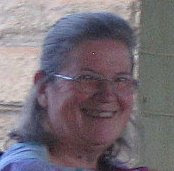December wabs a difficult month for Ali, the man who does my gardening and works 2 nights a week as guard. The death of his oldest daughter 2 years ago is still fresh in his mind. This past December was even harder.
Ali and Takia have 2 girls and boy, plus care of two nieces. The landlord gave them notice in mid-Dec to pay more rent or move by 1 January. She increased the rent 20% and did not follow the “rules” here of giving a 3 month notice. This was to occur just at the time of the expected delivery of their 4th child. Takia used a neighborhood medical clinic for one pre-natal check, but since there were no extra funds in the family budget, she was not able to do regular pre-natal care.
When Ali and I talked about delivery options, he was really stressed and just wanted to believe that this delivery would be easy like the others and would happen at the clinic. He had only a little money saved to cover the cost. As we talked, it seemed prudent to have a back up plan. We talked about a hospital delivery if there were any complications, but he worried about the transport and the costs. We agreed on a a short term loan to help out. (I pay half of medical expenses, but this could be pretty expensive.) For the housing issue, he had spoken with the Local Chairman who promised to intervene with the landlord.
January 5th the landlord arrived with a notice from the police summoning Ali to the station. Takia went into labor after Ali left. She took a boda to the clinic. When Ali finished with the police and arrived at the clinic, she was well into the labor process, but the baby was breech presentation. The clinic staff felt unqualified to assist and referred them to another hospital fairly near by. Using a special hire car (taxi) they went there, only to be refused and sent to the regional specialty hospital across town. Ali really began to panic as there were clearly problems and Takia was in great pain. The specialty hospital also refused them service and sent them on to Nsambya hospital which has a good neo-natal unit. That was where, after over 30 hours of labor, the baby was finally born, without a C-section! The medical team there were able to turn the baby so he was delivered normally.
For much of the time, Ali feared he would lose the baby and his wife. He has vowed that this is the last child for them. Takia has had some post-delivery complications and needs some follow up care. Good enough, the hospital is reasonably close to where they live.
The total cost of all the clinics, hospitals, care, medicines, etc, came to 480,000/= UGS, about $260. He used up all of his savings for the medical care. In addition Ali has taken a salary advance to raise the required 3 months rent payment for the new place that the Local Chairman found for him.
Ali is an incredible father. He managed to work through all the ups and downs of this in the month that is also the anniversary of the death of his oldest daughter. He came to work every day, missed only 2 days of school lectures, and organized for Takia and the kids to begin life in this new house (a room that is 12 by 14 feet). How he managed all of this and didn't turn gray overnight....or beg for assistance from others is more than I know. It is only God who knows....
Here in Uganda, infant and maternal mortality are very high. 3 of every 10 children born do not reach their 5th birthday and one in seven deliveries results in maternal death. Health care that is fairly easily available to people in towns in the US and other western countries is not the norm here, even in Kampala, a city of 3 million people.
The good news: Ali and his wife, Takia, have a new, healthy baby boy, named Akuramu (Akura for short). At this time, all are doing well

